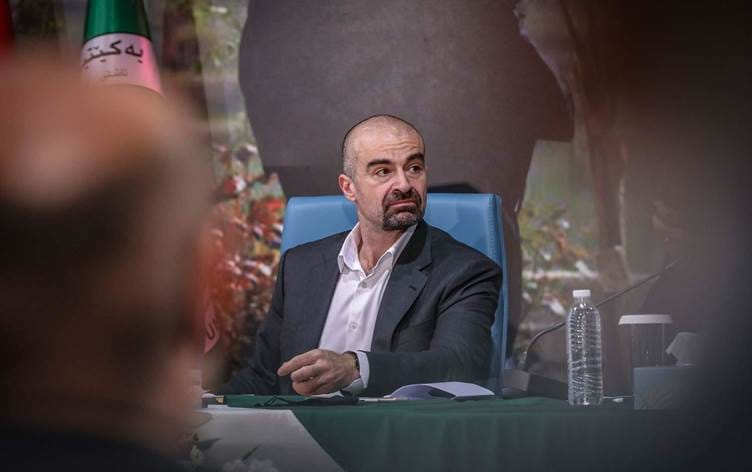The Patriotic Union of Kurdistan (PUK) has unveiled a series of substantial changes to its internal bylaws, indicating a pivot in the party’s governance and direction. Bafel Talabani, who has been steadily solidifying his authority, seems to have successfully streamlined these changes, especially after the removal of co-leader Lahur Sheikh Jangi Talabany in 2021. This reshuffling has effectively marked the end of the co-leadership system, which was previously lauded as a symbol of power-sharing within the PUK.
Many of these amendments look to further centralize power. The elimination of the co-leadership system stands out prominently. Instead of shared responsibility, the term “co-leader” has now been consistently supplanted by “leader” throughout the document.
The revised voting mechanism also holds implications for the party’s decision-making process. Transitioning from a two-thirds majority requirement to a simple majority system suggests a move to streamline decision-making, but it also harkens back to challenges faced previously with internal bickering and decision-making paralysis.
While some changes arguably modernize the party’s governance—like provisions against misconduct that involve acts of violence against women—others have raised eyebrows. Granting the leader more authority, such as the unilateral ability to approve the party’s annual financial budget and restructuring party offices, might raise concerns about checks and balances within the PUK’s governance structure.
The financial dynamics of the PUK have also seen a major shift. The introduction of a centralized fund, which will encompass all of PUK’s revenues and projects, hints at a broader attempt at fiscal consolidation.
These changes, it appears, signal the PUK’s intent to refashion itself amidst an evolving political landscape. However, they also elicit questions about intra-party democracy and the concentration of power in the hands of a single leader.
Leadership & structural changes
- The Secretary of the Leadership Council now holds all rights and duties of a Political Bureau member.
- “Co-leader of the Political Bureau” has been replaced simply with “leader.”
- PUK’s leader is chosen from the Leadership Council, effectively ending the co-leadership system.
- Powers formerly associated with the co-leader in Article 37 have been redefined for a singular leader.
- Leaders can now delegate their roles to an Executive Committee member when absent.
Voting & membership rules
- All PUK organs will now utilize a simple majority voting system.
- PUK members proven to engage in violence against women face suspension, whether they serve in the party, government, or parliament.
- Membership suspensions can last until the subsequent party conference.
- Leaders can propose additional seats within the Leadership Council, potentially for new members or those from other parties.
- Leaders are granted authority to fill vacant seats within the Leadership Council.
Operational & administrative overhauls
- Simplified approval processes are in place for the Higher Commission’s party conference preparations.
- Leaders, not the Leadership Council, now have authority to restructure party offices.
- An “Information Bank” has been added to the Organizational Bureau.
- The Foreign Relations Bureau is downsized from four boards to two, retaining only Kurdistani and Foreign boards.
Financial adjustments
- Clause 7 of Article 40, related to annual financial budgets, has been removed. Now, the PUK leader gives the final approval instead of the Leadership Council.
- The General Revenue Board will be managed by a committee chosen by the PUK leader.
- A central fund has been introduced to pool all PUK revenues, from which all PUK projects will be funded.
- A member of the Leadership Council will oversee the Expenditure Board.
- The leader can now suggest extra seats within the Leadership Council for potential members from different parties.


